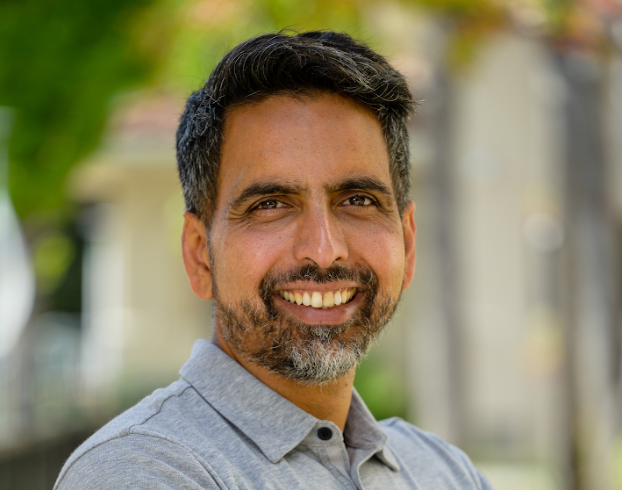How Sal Khan Uses AI To Teach
Sal Khan has embraced AI to help support Khan Academy, but he also uses it in his own teaching practice.

Tools and ideas to transform education. Sign up below.
You are now subscribed
Your newsletter sign-up was successful
When Sal Khan first got access to an advanced AI large language model, like many edtech enthusiasts, he couldn’t get enough of it.
“There’s the early adopter crowd, the techno-curious crowd,” Khan says. “When we first got access to the technology, we didn’t sleep, we just kept playing with it."
Khan’s early use of AI encouraged him to embrace it. GPT-4 technology helps power Khanmigo, an AI tutor from his free online platform Khan Academy.
Khan believes these types of AI tutors can revolutionize the way writing is taught and many other aspects of education. But at the same time, his personal use of AI has evolved. He’s spending less time playing with the tool and more time using it in specific ways to help prepare for the education videos he still makes for Khan Academy.
Here is how Khan uses it as an educator himself.
How Sal Khan Uses AI: Learning Through Discussion and Ideation
Khan uses AI to help him prepare to make educational videos in two key ways. First, to explore deeper conceptual questions he has, and many students might also have, about topics video are addressing. Second, Khan uses it for "ideation." For instance, he says if he’s looking for books on a given topic and can come up with a few titles, he might ask an AI tool for more information.
The first use is what he typically finds most helpful. He believes a key to his success is his ability to ask questions during his videos that anticipate questions students might have. This grew out of his own lifelong intellectual curiosity.
Tools and ideas to transform education. Sign up below.
“Maybe some teachers got annoyed by me when I was a kid. I would ask the educated question. ‘Hey, if that’s true, wouldn’t this be true?’” Khan says.
When planning his videos, Khan explores conceptual questions that he might already know the answer to as well as ones he’s unsure of and needs to explore before filming. A good large language model can be the perfect tool to test these types of questions and can lead to deeper learning in the process, he says.
Conceptual Questions and AI
A recent example of how Khan uses AI to explore conceptual questions came when he was preparing for a video and trying to understand why supernovas explode. Though he knew the basics, he couldn’t quite visualize why the death of a star would lead to an outward explosion. So he asked Khanmigo. Instead of providing a Wikipedia-style answer, it asked him what he knew already. Khan told the AI that he knew the basics but didn’t quite understand why a star that had essentially ran of fuel would explode.
“I would think it would collapse if you have all the fusion stopping,” Khan explained to the AI when prompted.
The AI told him he wasn’t wrong but asked several questions encouraging him to think more about that collapse and what collapsing entails. “Have you ever seen anything that falls quickly without bouncing?” The AI asked. Khan responded, “Oh, so are you telling me that it collapses so quickly that it essentially compresses the core and that it rebounds?”
The AI said, “Yes, that's exactly what's going on.”
That lead to an “a-ha” moment for Khan, and after the exchange, he had a better picture of what caused a supernova. This type of conceptual insight is what Khan believes AI is so well positioned to do both for educators and their students.
“I’ve done web searches on this, I’ve read articles from NASA,” he says. “I didn't quite get that conceptual understanding that I got with this ten-minute conversation that I had with the AI.”
Ultimately, like so much in education, getting the most out of an AI interaction is all about asking good questions to create a useful dialogue.
Erik Ofgang is a Tech & Learning contributor. A journalist, author and educator, his work has appeared in The New York Times, the Washington Post, the Smithsonian, The Atlantic, and Associated Press. He currently teaches at Western Connecticut State University’s MFA program. While a staff writer at Connecticut Magazine he won a Society of Professional Journalism Award for his education reporting. He is interested in how humans learn and how technology can make that more effective.

